The radical history of a past MA president
Count George Noble Plunkett, one of our past presidents, played a major role in the 1916 Easter Rising, the armed insurrection against British rule in Ireland.
Born in 1851 to a wealthy Dublin family, Plunkett was a man of many talents – a poet, journalist and scholar in antiquity who played a part in the Gaelic cultural revival of the late 19th century. He became the director of what was then the Dublin Museum of Art and Science in 1907 and was a driving force behind the decision to rename the institution as the National Museum of Art and Science and give greater prominence to its collection of Irish antiquities.
He served as the MA’s president from 1911 to 1912, when the annual conference was hosted in Dublin. In his address to conference, Plunkett said: “To my mind a museum is more than a system; it is a part of the national life and of the higher qualities of the people to whom it belongs.”
But it wouldn’t be long before historic events brought his tenure at the National Museum to an end. Already a vocal supporter of Home Rule (Irish self-governance) and a close friend of Charles Stewart Parnell and Roger Casement – two of the major figures in the country’s independence movement – Plunkett and his wife Josephine became involved in the Rising through their children, particularly their son Joseph, who played a key part in planning the rebellion.
Plunkett senior helped in Casement’s plot to smuggle arms from Germany into Ireland ahead of the rebellion – for which the latter was later executed for treason – and also travelled around the country to secure support from Catholic bishops for the Rising.
On 25 April 1916, the second day of the Rising, he joined the ranks of the rebels who were occupying Dublin’s General Post Office, but was sent home by his son Joseph.
Following the surrender of the rebels after six days of fighting, the Plunketts and three of their sons were imprisoned in Kilmainham Gaol, where Joseph, who was one of the signatories of the 1916 Proclamation of Independence, was subsequently executed.
Although the Rising was quashed, it brought about a profound shift in public opinion towards the republican cause, leading to the War of Independence three years later.
After the Rising, Plunkett was fired from the National Museum and was forced to resign from the Royal Dublin Society. In the years that followed, he went on to become a prominent political figure and was elected as a Sinn Féin MP in Westminster in 1917. He served as minister for fine arts in the first independent Irish parliament in 1921.
Plunkett remained deeply involved in Irish culture and heritage throughout his life and was a pioneer of the Irish language movement. He died in 1948 and is buried alongside fellow republicans in Dublin’s famous Glasnevin Cemetary.
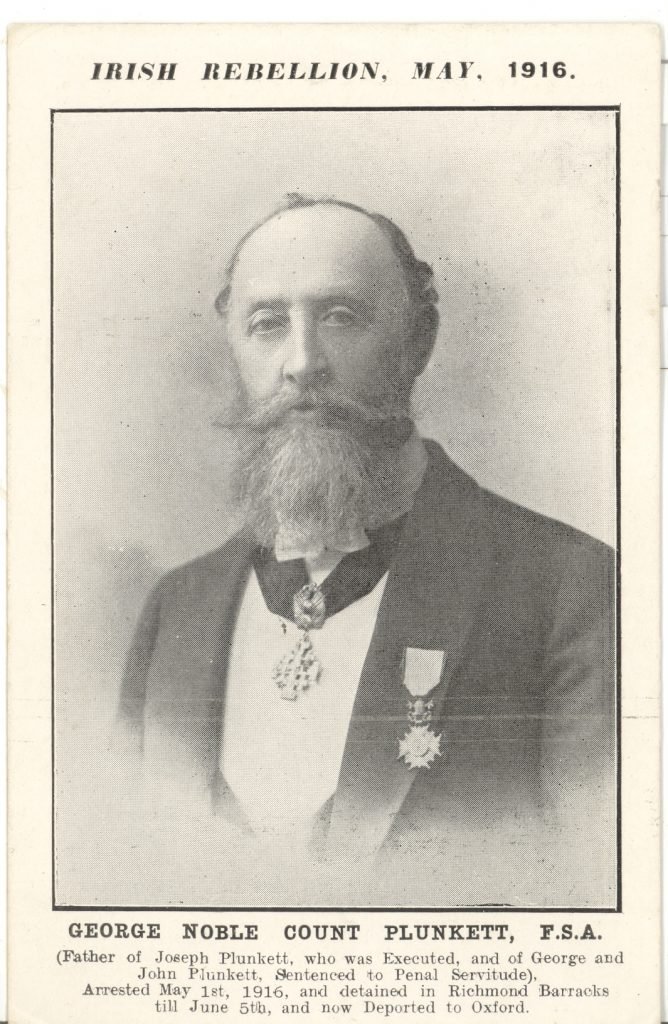
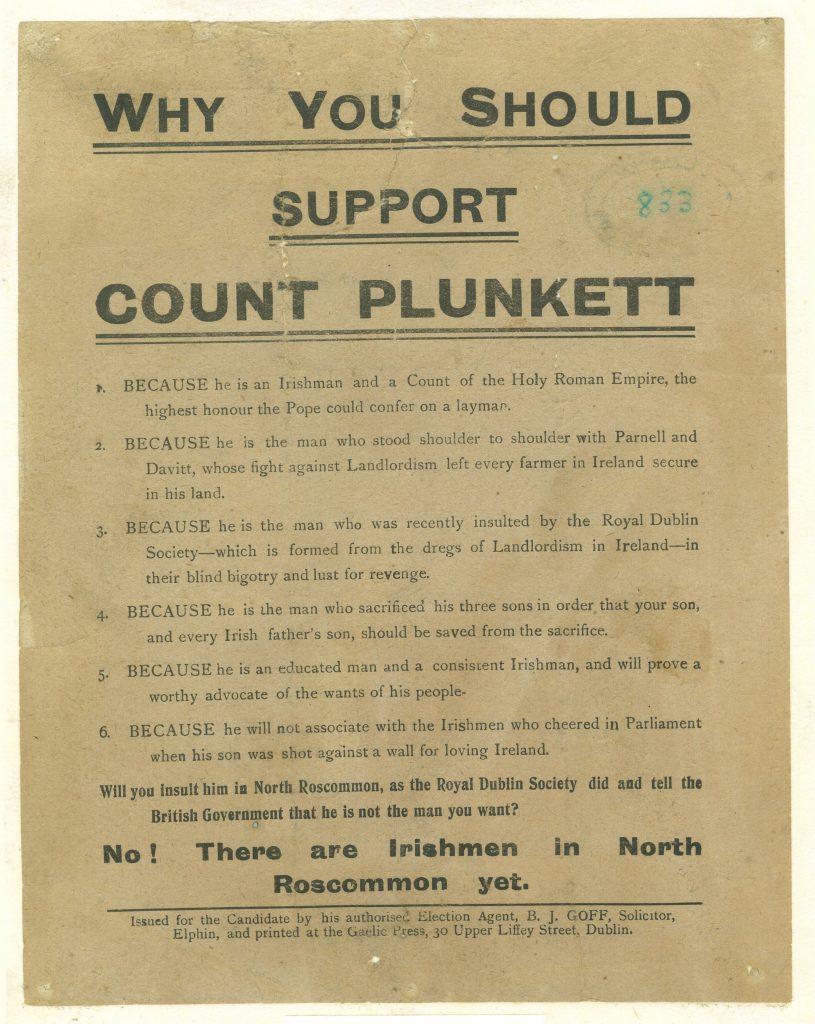
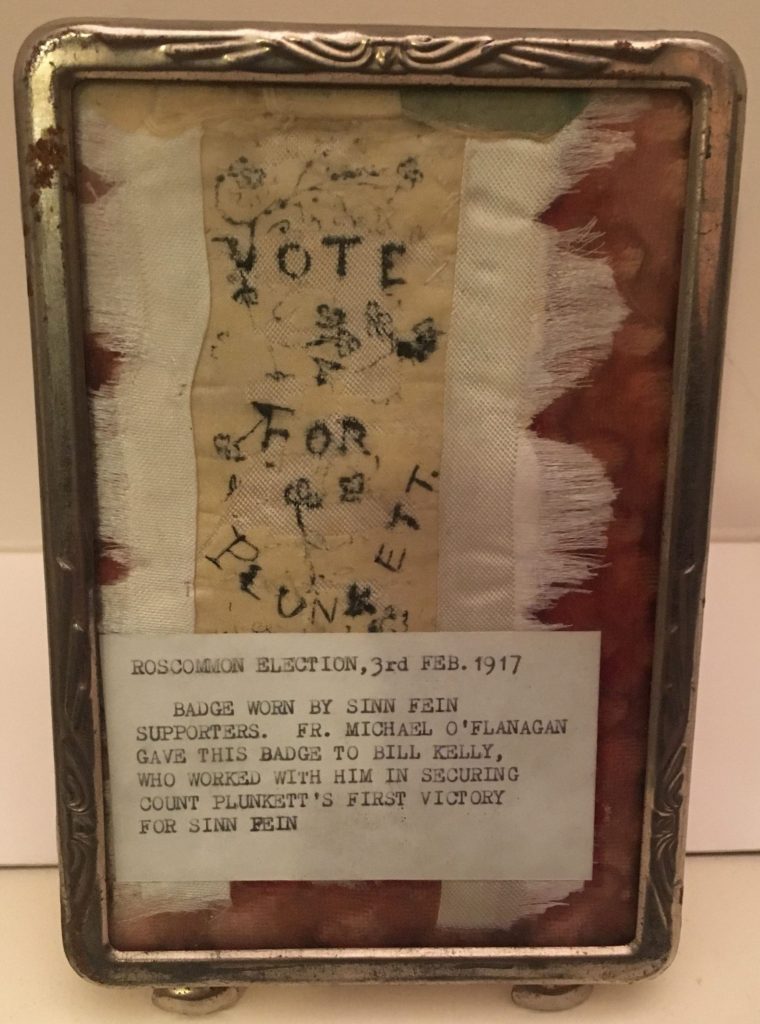
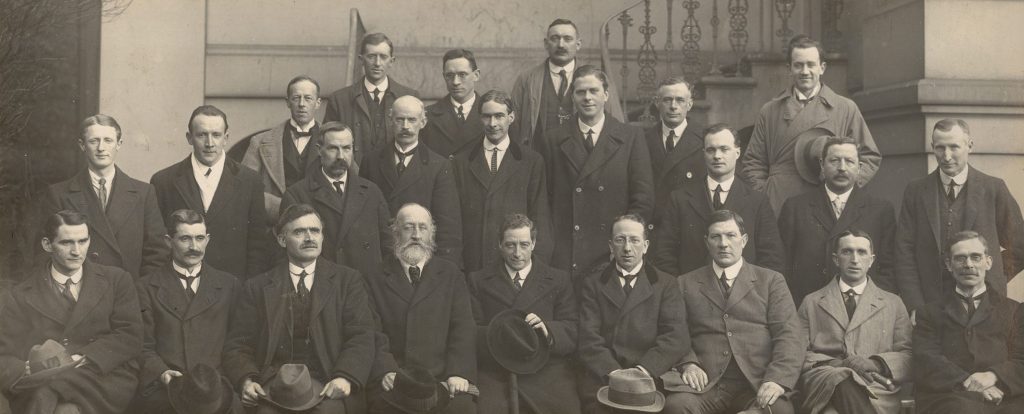
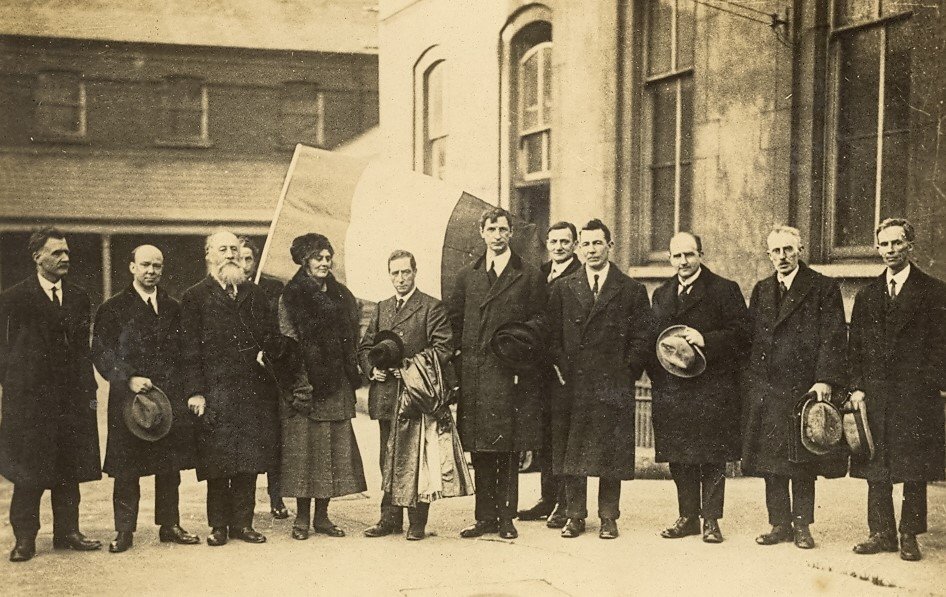
This article is based on research collated by Brian Crowley, the collections curator of Kilmainham Gaol and an article by Mairéad Carew published in Discovery Programme Reports 9: A Research Miscellany (2018).